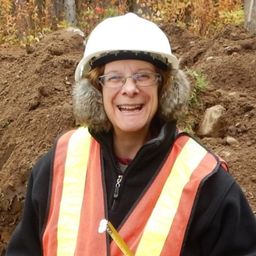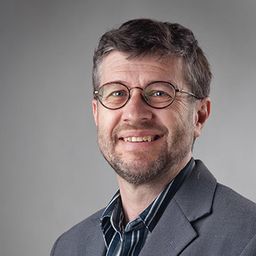
Archéologue ayant œuvré dans le domaine de la recherche historique depuis plus de 50 ans et dans le secteur du patrimoine industriel depuis 30 ans. Parmi les projets auxquels l’auteur a participé : direction d’interventions archéologiques au LHN national du Canal-de-Lachine (Parcs Canada), au Village historique de Val-Jalbert étude et à la Pulperie de Chicoutimi, une étude diagnostique sur le patrimoine archéologique industriel du Québec (Ministère de la Culture et des Communications du Québec), ainsi que des évaluations, diagnostiques, avis et études de potentiels pour la Ville de Montréal, Parcs Canada, le Conseil du Patrimoine, Salaberry-de-Valleyfield, Arvida, le Ministère des Transports (Manic-5) et Hydro-Québec.
Documents
Sessions in which Gisèle Piédalue participates
Tuesday 30 August, 2022
Sessions in which Gisèle Piédalue attends
Monday 29 August, 2022
Industrialization processes have been global from their very beginning. However, their interpretation still tends to be limited to specific locations or regions, and to specific time periods. Regularly, for example, it is stated that the industrial revolution started in Europe, from where it spread to the world, supposedly bringing technological and social progress to „less developed“ countries. Earlier periods of technology and knowledge transfer processes, that were already in place in t...
Tuesday 30 August, 2022
It is widely accepted that understanding a historic place is a critical first step to guide subsequent management and conservation. Industrial sites present a number of challenges as understanding their form, function, design, boundaries, and conservation often requires a high degree of technical expertise and experience. In Canada, gaining this expertise and information sharing is hampered by a limited number of institutions offering training in industrial archaeology and the lack of a na...
Industrialization processes have been global from their very beginning. However, their interpretation still tends to be limited to specific locations or regions, and to specific time periods. Regularly, for example, it is stated that the industrial revolution started in Europe, from where it spread to the world, supposedly bringing technological and social progress to „less developed“ countries. Earlier periods of technology and knowledge transfer processes, that were already in place in t...
As a "continent” country, in which industrialization began as early as the 19th century, Canada has seen through deindustrialization and urban redevelopment, parts of this heritage have been either altered or destroyed. Yet, Canada still possesses a very significant industrial heritage. With Canada being a confederation, approaches to the protection and the safeguard of its industrial heritage differs throughout the provinces and territories of the country. The same is true of i...
Wednesday 31 August, 2022
Visit of the permanent exhibition : À cœur de jour, grandeurs et misères d'un quartier populaire, which traces the history of one of the oldest industrial and working-class neighborhoods in Montreal. Discovery of the old Généreux bathhouse, a building that recalls a time when most working-class dwellings had neither bath nor shower. Presentation of some elements of the neighborhood's heritage on the way between UQAM and the Écomusée.The visit will be guided in French by René Binette...
L’activité industrielle est un puissant facteur de concentration de population. En témoignent les sites antiques ou médiévaux étudiés par les historiens, souvent proches des mines, des carrières ou des chantiers de construction. À partir du XVIIIe siècle, cependant, avec les premiers développements industriels, des liens forts se tissent entre les usines et diverses formes d’urbanisation. De la variété de rapports que construit l’industrie avec la ville ou, plus largement, avec les lieux d...
Examples from several continents, in Europe, South America, North America, Turkey, show strong continuity in the objectives that govern the reuse of industrial buildings, for example the concern to take into account the industrial heritage as a resource for urban and territorial development, or the close links that it has with culture, whether it is used to house cultural facilities or more simply to bear witness to the history and memory of the place. Increasingly, policies for the reuse ...
This session addresses a perpetuating disjunction between conceptualisation of heritage and heritage making in heritage studies vis-a-vis heritage management and conservation of industrial heritage sites. There is an inevitable impact of this disjunction on advancing policy in people- and place-centred approaches to heritage futures. This session aims to explore ways in which tangible and intangible traces of the past can be utilised creatively in shaping desirable places to dwell and work...
